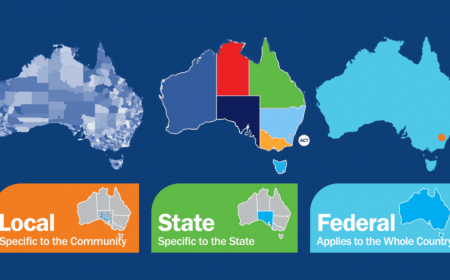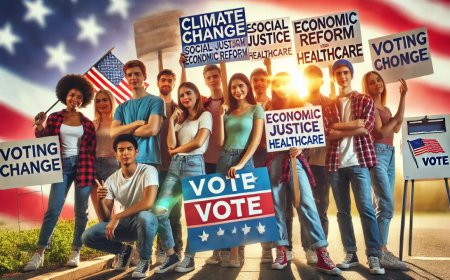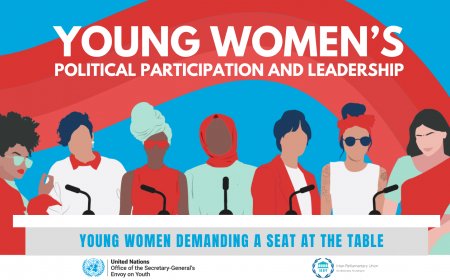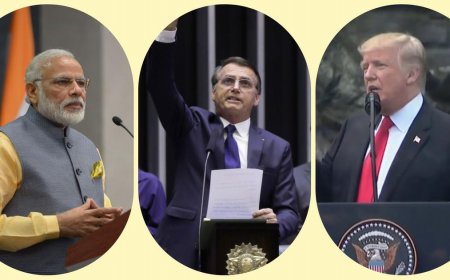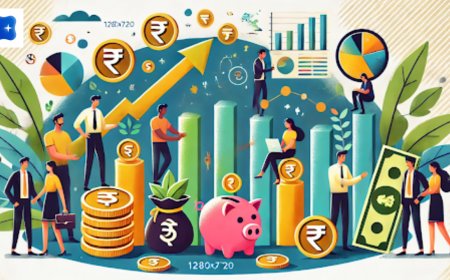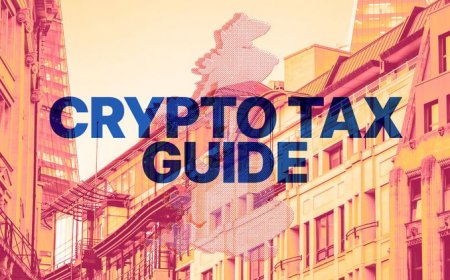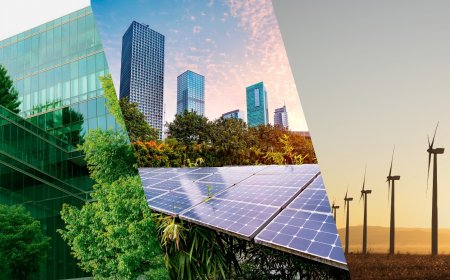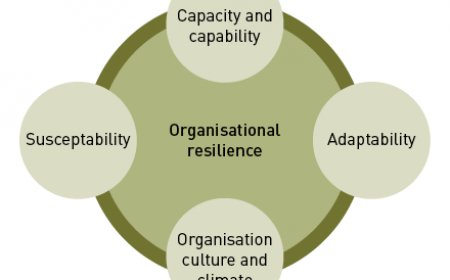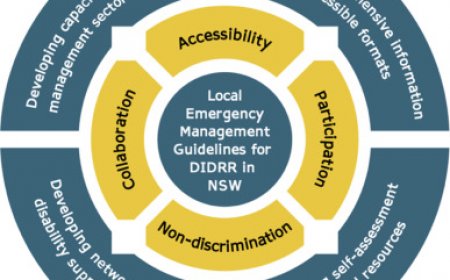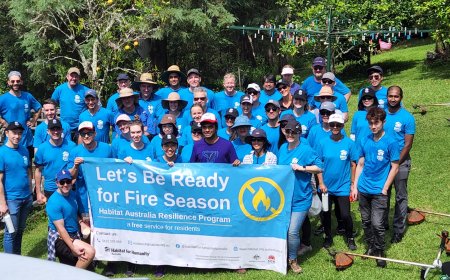Global Elections: Authoritarian Regimes and Democratic Hopes
Explore the intricate dynamics of global elections, where authoritarian regimes clash with democratic aspirations. Understand the challenges and opportunities shaping our world today.
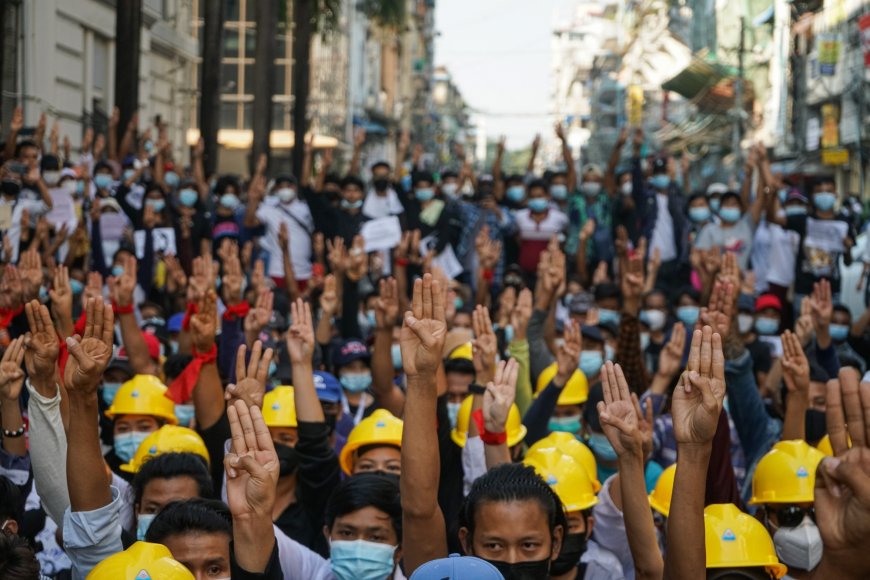
In an increasingly interconnected world, the dynamics of global elections have become a focal point for discussions about governance, human rights, and societal progress. From the rise of authoritarian regimes to the resilience of democratic institutions, the electoral landscape is both complex and deeply consequential. This article delves into the intricate interplay between these forces, exploring how they shape the political, economic, and social futures of nations.
The Rise of Authoritarian Regimes: A Growing Concern
Authoritarian regimes have historically been characterized by centralized power, limited political freedoms, and suppression of dissent. In recent years, however, there has been a noticeable resurgence of such systems, often cloaked in democratic rhetoric. These regimes employ sophisticated strategies to maintain control while projecting an image of legitimacy.
How Authoritarian Regimes Consolidate Power
One of the primary methods through which authoritarian leaders consolidate power is by manipulating electoral processes. This manipulation can take many forms, including voter suppression, gerrymandering, media censorship, and outright election fraud. By controlling the narrative and limiting opposition voices, these regimes create an illusion of democracy while ensuring their continued dominance.
For example, countries like Russia and China have perfected the art of holding elections that are neither free nor fair. In Russia, state-controlled media ensures that only pro-government narratives reach the public, while opposition candidates face insurmountable hurdles. Similarly, in China, the Communist Party maintains strict oversight over all aspects of governance, leaving little room for genuine political competition.
"Democracy dies in darkness," said U.S. Supreme Court Justice Louis Brandeis. This quote resonates deeply when examining how authoritarian regimes use misinformation and propaganda to suppress dissent.
Media Manipulation and Censorship
Authoritarian regimes often rely on state-controlled media to disseminate propaganda and suppress dissenting opinions. In countries like North Korea, the government exercises total control over information flow, ensuring that citizens receive only state-approved content. Meanwhile, in Turkey, President Recep Tayyip Erdoğan has cracked down on independent journalism, imprisoning journalists and shutting down critical outlets.
Even in more subtle cases, such as Hungary under Viktor Orbán, media consolidation has allowed the government to dominate the narrative. Independent newspapers and broadcasters face financial pressure or legal challenges, making it nearly impossible for alternative viewpoints to gain traction.
Legal Frameworks Designed to Suppress Opposition
Another hallmark of authoritarian regimes is the creation of legal frameworks that stifle opposition. Laws targeting "terrorism" or "sedition" are frequently weaponized to silence critics and activists. For instance, Egypt’s government has used anti-terrorism laws to arrest thousands of dissidents, labeling peaceful protests as acts of terrorism.
Similarly, in Venezuela, Nicolás Maduro’s administration has passed legislation criminalizing criticism of the government. Such laws not only discourage public dissent but also create an atmosphere of fear, discouraging people from participating in civic life.
Economic Leverage as a Tool of Control
Another critical factor enabling the rise of authoritarianism is economic leverage. Many authoritarian governments exploit natural resources or strategic industries to fund their regimes and reward loyalists. For instance, oil-rich nations like Venezuela under Nicolás Maduro have used state revenues to maintain power, even as the general population suffers from economic collapse.
Moreover, authoritarian regimes often engage in corruption and cronyism, further entrenching their grip on power. By controlling key sectors of the economy, these leaders ensure that any challenge to their authority comes at a steep financial cost.
Resource Nationalism and Economic Exploitation
Countries rich in natural resources often fall prey to what scholars call the "resource curse." Instead of benefiting the broader population, resource wealth becomes concentrated in the hands of a few elites who align themselves with authoritarian rulers. Angola, for example, remains one of Africa's largest oil producers, yet its citizens endure widespread poverty due to rampant corruption within the ruling elite.
Similarly, Saudi Arabia uses its vast oil reserves to bolster the monarchy’s power. While the kingdom invests heavily in infrastructure and social programs, much of this spending serves to reinforce loyalty rather than address systemic inequalities.
State-Controlled Economies and Crony Capitalism
Some authoritarian regimes adopt state-controlled economies to centralize power further. Cuba’s communist system exemplifies this approach, where the state owns most enterprises and dictates economic activity. Although reforms have introduced some private enterprise, the government retains tight control over major industries.
Crony capitalism, on the other hand, thrives in countries like Malaysia during former Prime Minister Najib Razak’s tenure. The 1Malaysia Development Berhad (1MDB) scandal revealed how billions were siphoned off into personal accounts, highlighting the dangers of unchecked economic favoritism.
Democratic Hopes: Resilience Amid Challenges
Despite the growing influence of authoritarian regimes, democratic ideals continue to inspire millions around the globe. From grassroots movements to international advocacy, the fight for democracy remains a beacon of hope in uncertain times.
The Role of Civil Society in Strengthening Democracy
Civil society plays a pivotal role in defending democratic values. Activists, journalists, and non-governmental organizations (NGOs) work tirelessly to hold governments accountable and promote transparency. Their efforts range from organizing protests to exposing corruption and advocating for policy reforms.
In countries like South Africa , civil society groups have successfully pressured governments to address issues such as inequality and corruption. Similarly, in India , widespread protests against controversial laws demonstrate the enduring spirit of democracy.
Grassroots Movements and Social Change
Grassroots movements have proven instrumental in driving social change and advancing democratic principles. The Arab Spring uprisings of 2011 showcased the power of ordinary citizens demanding greater freedoms and accountability. Although outcomes varied across the region, Tunisia emerged as a rare success story, transitioning to a functioning democracy despite initial setbacks.
More recently, Hong Kong’s pro-democracy protests captured global attention. Despite facing brutal crackdowns, protesters demonstrated remarkable resilience, using creative tactics like flash mobs and digital activism to evade authorities.
The Importance of Free Press
A free press is essential for sustaining democracy, acting as a watchdog against abuses of power. Investigative journalists expose scandals, hold officials accountable, and inform the public about critical issues. However, they often operate under immense risk in authoritarian environments.
Maria Ressa, a Filipino-American journalist and Nobel Peace Prize laureate, embodies this struggle. Through her news website Rappler, she has exposed corruption and disinformation campaigns linked to Philippine President Rodrigo Duterte. Her courage underscores the vital role journalists play in safeguarding democratic norms.
Technology as a Double-Edged Sword
While technology has empowered citizens to mobilize and share information, it has also been weaponized by authoritarian regimes to surveil and suppress dissent. Social media platforms, once hailed as tools for democratization, are now frequently used to spread disinformation and polarize societies.
However, technology also offers opportunities for innovation in democratic processes. Blockchain-based voting systems, for example, could enhance transparency and reduce the risk of electoral fraud. As democracies adapt to technological advancements, they must strike a balance between leveraging new tools and safeguarding individual freedoms.
Disinformation Campaigns and Digital Warfare
Disinformation campaigns represent a growing threat to democracies worldwide. During the 2016 U.S. presidential election, Russian operatives exploited social media platforms to sow discord and sway public opinion. Similar tactics have been employed in Europe, targeting elections in France, Germany, and the United Kingdom.
To combat this menace, tech companies and governments must collaborate on developing robust countermeasures. Initiatives like fact-checking partnerships and algorithmic transparency can help mitigate the spread of false information.
Blockchain Voting: A Potential Game-Changer
Blockchain technology holds promise for revolutionizing electoral systems. By creating tamper-proof digital records, blockchain-based voting could eliminate many traditional vulnerabilities associated with paper ballots and electronic machines. Estonia already leads the way in implementing e-voting solutions, demonstrating the feasibility of secure remote participation.
However, concerns remain regarding accessibility and cybersecurity risks. Ensuring universal access to digital infrastructure and protecting against hacking attempts will be crucial before widespread adoption can occur.
Case Studies: Contrasting Electoral Systems
To better understand the global electoral landscape, let us examine two contrasting case studies—one representing an authoritarian regime and the other exemplifying a thriving democracy.
Case Study 1: Hungary – The Erosion of Democracy
Once considered a model of post-communist transition, Hungary has witnessed a steady erosion of democratic norms under Prime Minister Viktor Orbán. Since coming to power in 2010, Orbán has systematically dismantled checks and balances, curtailed press freedom, and marginalized opposition parties.
Key tactics employed by Orbán include rewriting the constitution to favor his party, Fidesz, and using state resources to undermine independent media outlets. As a result, Hungary's status as a democracy has come under scrutiny, with organizations like Freedom House downgrading its classification to "partly free."
Orbán’s Media Empire
Central to Orbán’s strategy is his control over the media landscape. Through friendly business tycoons, he has acquired numerous outlets, turning them into mouthpieces for government propaganda. Simultaneously, independent journalists face harassment, lawsuits, and job losses, effectively silencing opposing voices.
This monopolization extends beyond traditional media to online spaces. Pro-government trolls flood comment sections and social media feeds, drowning out dissenting opinions and creating echo chambers that reinforce official narratives.
Judicial Overhaul and Constitutional Changes
Orbán’s assault on democracy includes reshaping the judiciary to serve partisan interests. By packing courts with loyalists and lowering retirement ages for judges, he ensures favorable rulings on contentious issues. Additionally, constitutional amendments weaken parliamentary oversight, concentrating executive power in the prime minister’s office.
These measures collectively undermine Hungary’s separation of powers, raising alarms among European Union partners concerned about democratic backsliding within their ranks.
Case Study 2: Uruguay – A Beacon of Stability
In stark contrast, Uruguay stands out as a shining example of democratic stability in Latin America. Known for its robust institutions, high levels of civic engagement, and progressive policies, Uruguay consistently ranks among the top democracies globally.
Uruguayans enjoy strong protections for civil liberties, a vibrant multiparty system, and low levels of corruption. The country's commitment to inclusivity is evident in its pioneering legalization of same-sex marriage and marijuana regulation. Such achievements underscore the potential for democracy to deliver tangible benefits to its citizens.
Progressive Policies Rooted in Consensus
Uruguay’s success stems partly from its tradition of consensus-building. Political parties prioritize dialogue and compromise, fostering stable governance even amid ideological differences. This collaborative approach extends to policymaking, where broad coalitions support initiatives addressing pressing societal needs.
For instance, Uruguay’s healthcare system provides universal coverage, ensuring equitable access regardless of income level. Likewise, education reforms emphasize quality teaching and inclusive curricula, preparing future generations for diverse career paths.
Strong Institutions and Civic Participation
Uruguay’s institutional strength reflects deep-rooted respect for rule of law and transparency. Anti-corruption measures deter graft, while whistleblower protections encourage reporting misconduct. Furthermore, active citizenry participates regularly in referendums and consultations, shaping policies directly aligned with community priorities.
Such participatory mechanisms empower individuals, reinforcing trust in democratic processes and enhancing overall satisfaction with governance outcomes.
The Global Impact of Electoral Outcomes
Elections do not occur in isolation; their outcomes reverberate across borders, influencing everything from trade relations to security alliances. Understanding this interconnectedness is crucial for addressing global challenges effectively.
Trade and Economic Implications
Electoral results can significantly impact trade agreements and economic partnerships. For instance, the election of protectionist leaders may lead to tariffs and trade wars, disrupting global supply chains. Conversely, pro-trade administrations can foster collaboration and boost economic growth.
Consider the United States' withdrawal from the Trans-Pacific Partnership (TPP) following Donald Trump’s presidency. This decision had far-reaching consequences for member nations, highlighting how domestic politics can shape international commerce.
Protectionism vs. Globalization
Protectionist policies prioritize national interests over global cooperation, often resulting in retaliatory measures that harm economies worldwide. Brexit exemplifies this trend, as Britain’s departure from the EU disrupted longstanding trade relationships and triggered uncertainty across industries.
On the flip side, globalization champions argue that open markets stimulate innovation, lower consumer costs, and drive sustainable development. Countries embracing free trade agreements, such as Canada and Japan, reap mutual benefits through increased exports and foreign investments.
Supply Chain Vulnerabilities
Recent disruptions caused by geopolitical tensions and pandemics underscore the fragility of global supply chains. Dependence on single sources exposes businesses to risks ranging from tariffs to natural disasters. Diversifying suppliers and investing in local production capabilities offer viable solutions moving forward.
Security and Geopolitical Dynamics
Electoral shifts also affect geopolitical dynamics, particularly in regions plagued by conflict or instability. Authoritarian regimes often pursue aggressive foreign policies to distract from internal challenges, while democracies tend to prioritize diplomacy and multilateralism.
The ongoing tensions between North Korea and South Korea illustrate this dichotomy. While North Korea's authoritarian leadership relies on military provocations to maintain domestic support, South Korea’s democratic government seeks peaceful resolutions through dialogue and cooperation.
Military Posturing and Diplomatic Engagement
Military buildups signal strength but carry inherent risks of escalation. North Korea’s nuclear ambitions provoke regional anxieties, prompting neighboring states to bolster defenses and seek diplomatic resolutions. Meanwhile, South Korea pursues détente via summits and cultural exchanges aimed at easing hostilities.
Diplomacy proves equally vital in resolving conflicts elsewhere. Iran’s nuclear deal negotiations involved multiple stakeholders committed to preventing proliferation without resorting to force. Successful mediation requires patience, flexibility, and willingness to compromise—a hallmark of effective diplomacy.
Alliances and Defense Pacts
Defense pacts bind nations together, providing collective security guarantees against external threats. NATO exemplifies this principle, uniting Western democracies under shared defense commitments. Membership expands responsibilities but also enhances deterrence capabilities, deterring aggression from adversaries.
Conversely, shifting alliances reflect changing geopolitical realities. Turkey’s strained relations with NATO allies highlight complexities arising from divergent strategic interests. Balancing sovereignty with alliance obligations remains a delicate task requiring constant recalibration.
Challenges Facing Modern Democracies
Even established democracies face significant challenges in the 21st century. Rising inequality, climate change, and populism threaten to undermine trust in democratic institutions and erode public confidence.
Populism and Polarization
Populist movements have gained traction worldwide, capitalizing on dissatisfaction with traditional political elites. While some populist leaders advocate for legitimate grievances, others exploit divisions within society to consolidate power.
The Brexit referendum in the United Kingdom serves as a cautionary tale. Driven by anti-immigration sentiment and disillusionment with Brussels bureaucracy, the vote to leave the European Union exposed deep fissures within British society.
Anti-Establishment Sentiment
Anti-establishment rhetoric resonates with voters frustrated by perceived disconnect between politicians and constituents. Populist leaders tap into these sentiments, promising swift action on issues like immigration, crime, and economic stagnation. However, simplistic solutions rarely address root causes, leading to short-term fixes at best.
Brazil’s Jair Bolsonaro capitalized on anger towards corrupt politicians, positioning himself as an outsider capable of rooting out graft. Yet, his presidency faced criticism for exacerbating polarization and undermining environmental protections.
Polarization and Identity Politics
Identity politics exacerbate existing divides, framing debates along racial, ethnic, or religious lines. Politicians exploit these fault lines to galvanize bases, often at the expense of constructive dialogue. Resulting fragmentation weakens cohesion necessary for tackling complex problems collaboratively.
France’s Yellow Vest movement illustrates this phenomenon, uniting disparate groups frustrated by rising living costs and perceived elitism. Protesters demanded direct representation and fiscal reforms, challenging Emmanuel Macron’s centrist agenda.
Climate Change and Environmental Policy
Addressing climate change requires coordinated action at both national and international levels. However, short-term electoral cycles often prioritize immediate concerns over long-term sustainability, hindering effective policymaking.
Countries like Sweden and New Zealand have made strides in integrating environmental considerations into their political agendas. By prioritizing green initiatives and renewable energy, these nations demonstrate that democracy and sustainability can coexist harmoniously.
Green New Deals and Carbon Neutrality Goals
Ambitious plans like the Green New Deal propose sweeping transformations toward carbon neutrality. Advocates argue that investing in clean technologies creates jobs, stimulates innovation, and mitigates ecological damage. Skeptics warn of economic burdens and implementation hurdles.
Germany’s Energiewende initiative showcases mixed results thus far. Transitioning away from nuclear and fossil fuels poses technical and financial challenges, necessitating careful planning and stakeholder involvement.
Climate Justice and Equity
Climate justice advocates emphasize disproportionate impacts borne by marginalized communities. Indigenous peoples, coastal residents, and low-income households bear brunt of extreme weather events exacerbated by warming temperatures. Addressing inequities demands inclusive approaches incorporating diverse perspectives.
Australia’s bushfire crisis highlighted vulnerabilities faced by rural populations reliant on agriculture and tourism. Recovery efforts must account for livelihood restoration alongside ecosystem rehabilitation to prevent recurrence.
Travel Tips for Observing Global Elections
For those interested in witnessing global elections firsthand, careful planning is essential. Here are some tips to ensure a safe and enriching experience:
- Research Local Laws: Familiarize yourself with the host country's legal framework regarding elections, including restrictions on foreign observers.
- Stay Informed: Follow local news outlets and social media channels to stay updated on developments leading up to the election.
- Engage Respectfully: Approach interactions with locals sensitively, acknowledging cultural differences and avoiding partisan discussions.
Choosing Safe Destinations
Prioritize destinations known for peaceful electoral processes and minimal violence. Scandinavian countries like Norway and Denmark provide excellent opportunities to observe well-functioning democracies. Alternatively, consider emerging democracies undergoing significant transitions, provided safety precautions are taken.
Networking with Experts
Connect with academics, diplomats, and NGO representatives specializing in electoral affairs. Their insights offer valuable context and facilitate introductions to relevant stakeholders. Attend conferences and workshops focused on democracy promotion to expand your knowledge base.
Other Tourist Attractions Related to Governance
Beyond observing elections, travelers can explore sites associated with governance and history. Some notable attractions include:
- United Nations Headquarters (New York City): Learn about global diplomacy and attend guided tours.
- Parliament Buildings (Various Locations): Visit iconic landmarks like the Palace of Westminster in London or the Capitol Building in Washington, D.C.
- Human Rights Museums: Discover exhibits dedicated to preserving memories of struggles for justice and equality.
UNESCO World Heritage Sites
Several UNESCO-designated sites celebrate milestones in human rights and governance. Robben Island in South Africa commemorates Nelson Mandela’s imprisonment and eventual triumph over apartheid. Similarly, Auschwitz-Birkenau in Poland honors Holocaust victims, reminding visitors of atrocities perpetrated under totalitarian regimes.
Historical Landmarks
Explore historical landmarks symbolizing democratic milestones. Philadelphia’s Independence Hall marks birthplace of American democracy, housing original copies of Declaration of Independence and Constitution. Berlin Wall remnants stand testament to fall of communism and reunification of East and West Germany.
Conclusion
The interplay between authoritarian regimes and democratic hopes defines much of today's global political landscape. While challenges abound, the resilience of democratic ideals offers reason for optimism. By understanding the factors driving these trends and supporting efforts to strengthen democratic institutions, we can contribute to a more just and equitable world.
FAQs
-
What distinguishes authoritarian regimes from democracies?
- Authoritarian regimes concentrate power in the hands of a few, whereas democracies distribute authority among elected representatives.
-
How do authoritarian leaders manipulate elections?
- Tactics include voter suppression, media censorship, and electoral fraud.
-
Why is civil society important for democracy?
- Civil society holds governments accountable and advocates for transparency.
-
Can technology strengthen democratic processes?
- Yes, innovations like blockchain voting can enhance transparency but require safeguards.
-
Which countries exemplify successful democracies?
- Examples include Uruguay, Sweden, and New Zealand.
-
What role does corruption play in undermining democracy?
- Corruption erodes trust in institutions and distorts decision-making.
-
How do elections impact global trade?
- Election outcomes influence trade policies, affecting international commerce.
-
What are common challenges facing modern democracies?
- Issues include rising inequality, climate change, and populism.
-
How can tourists observe elections responsibly?
- Research local laws, stay informed, and engage respectfully.
-
Where can visitors learn about governance history?
- Sites like UN Headquarters and Parliament buildings offer educational experiences.
What's Your Reaction?
 Like
0
Like
0
 Dislike
0
Dislike
0
 Love
0
Love
0
 Funny
0
Funny
0
 Angry
0
Angry
0
 Sad
0
Sad
0
 Wow
0
Wow
0



